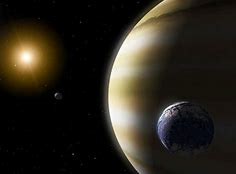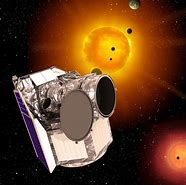First Published January 2020
Cheops – The Search for Earth
Item by The Energy Syndicate
On the 18th December, the European Space Agency’s Cheops mission lifted off, beginning its mission to detect the characteristics of planets orbiting stars other than our own.

An Exoplanet is defined as any planet outside our Solar System. Scientists had speculated for a long time about the existence of exoplanets but it wasn’t until 1995 when the existence of one was confirmed. Since then astronomers, using telescopes on earth and in space, have discovered more than 4000 exoplanets. These planets vary massively in their character.
The Cheops mission will take great steps in the world of exoplanet science. The mission will look closely at the planets discovered,
analysing every detail of their transit and make-up taking incredibly precise measurements. The science that Cheops
achieves will help to advance further projects including those of the James Webb Telescope.

The search for Exoplanets is particularly popular as there are many in hope of finding an Earth like planet capable of supporting life. To find one would be fascinating although without visiting it we would not know for certain. The problem of what to do then is a task that will remain out of reach of all if the science remains trapped in the physical locality. To travel to our nearest star in our fastest craft would take thousands of years. Cheops may find or pave the way to locating a habitable planet but without a radical change, traveling there will remain out of reach of any astronaut.
The search for another Earth like planet is a mission that sparks the imagination. It may be that a success in the near future, with all the speculation it would create could make more in the world turn to see that our planet, our home, is special – a life that should be cherished.




